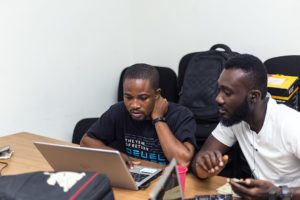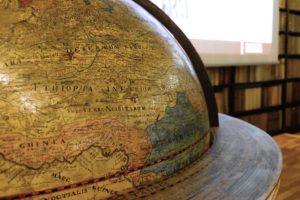C.3. Multiculturalism: Multi-cultural Perspectives and Immigration

#NowEditingWikipedia
EDITIONS
Continuous editions.
TARGET
Researchers interested in deepening multi-cultural perspectives and approaches, Press Officers, Communication Officers, Third Sector Professionals (as public and private social support services, NGOs, Associations), Social Workers, Legal Professionals and Practitioners. Researchers working in the field of Social Sciences. Professionals from the Education sector. Cultural and Community Mediators.
OBJECTIVE
The fundamental aim of this course is to help the participants to analyse the relation among our society and immigrants and refugees by a multi-cultural perspective. Owing to the increasing and by now steady migratory flow, the number of immigrants having a multi-cultural background is increasing in Italy and in Europe as well. For this reason, and in order to implement properly professional work procedures and techniques, an analysis of the actual migratory flows and trends is fundamental, through a cross-sector approach and adopting a robust multicultural perspective.
PROGRAMME
I MODULE (One Day)
– Fundamentals on geopolitics, anthropology, ethnography, geography, and history. Analysis of migratory flows (one hour)
– Fundamentals on people, population, minorities, emigration, immigration and migration in a geopolitical transnational, multicultural, and multiethnic context (one hour)
– Causes of migration in relation to workflows, political changes, geopolitical conflicts, environmental changes, and natural and manmade disasters and emergencies (two hours)
– Migratory trends (one hour)
– Legal frameworks regarding migrants and migrations (i.e. Italy, European Union, UNCHR), and opportunities for intervention and assistance. Immigrants, refugees and human rights. Citizenship and civil rights. The so called “Ius Soli” (two hours)
– The humanitarian issues. Protection of migrants, and the fight against trafficking of human beings (one hour)
II MODULE (One Day)
– The main land and maritime migration routes, countries of origin and of destination (two hours)
– Demographic and economic consequences of migrations for the countries of origin and of destination. Multicultural analysis at national and European level (two hours)
– Integration and multicultural society perspectives (one hour)
– The Mediterranean Sea as a strategic resource, cooperation area and potential geopolitical conflicts source after the Arabic Springs (two hours)
– Case study: the flows of “returning” migrants, their sustainability, the “voluntary assisted return” programs and new demographic and political scenarios (one hour)
TRAINING METHODOLOGY
The course is actually provided on line. Considering the need not only to provide knowledge and information to the participants, but also to involve them in practical activities and to support them through Q&A sessions, it is provided through on line platforms and tools requiring the simultaneous attendance of the participants. Deferred and non-synchronous classes may be organised if appropriate.
TRAINING MATERIAL
At the beginning of each module, the participants will receive in electronic format the slides that will be used. During classes, websites and useful links will be indicated to the attendees, and will be used for the development of different practical exercises.
DURATION
The course will last 16 hours.
NUMBER OF PARTICIPANTS
Minimum number of participants: 5.
Maximum number of participants: 15.
In this page – Image Credits:
- By Owula kpakpo – Own work, CC BY-SA 4.0, httpss://commons.wikimedia.org/w/index.php?curid=86164973
- “Buchpräsentation: Migration und die Macht der Forschung” by Universität Salzburg (NaWi-AV-Studio) is licensed under CC BY 2.0

